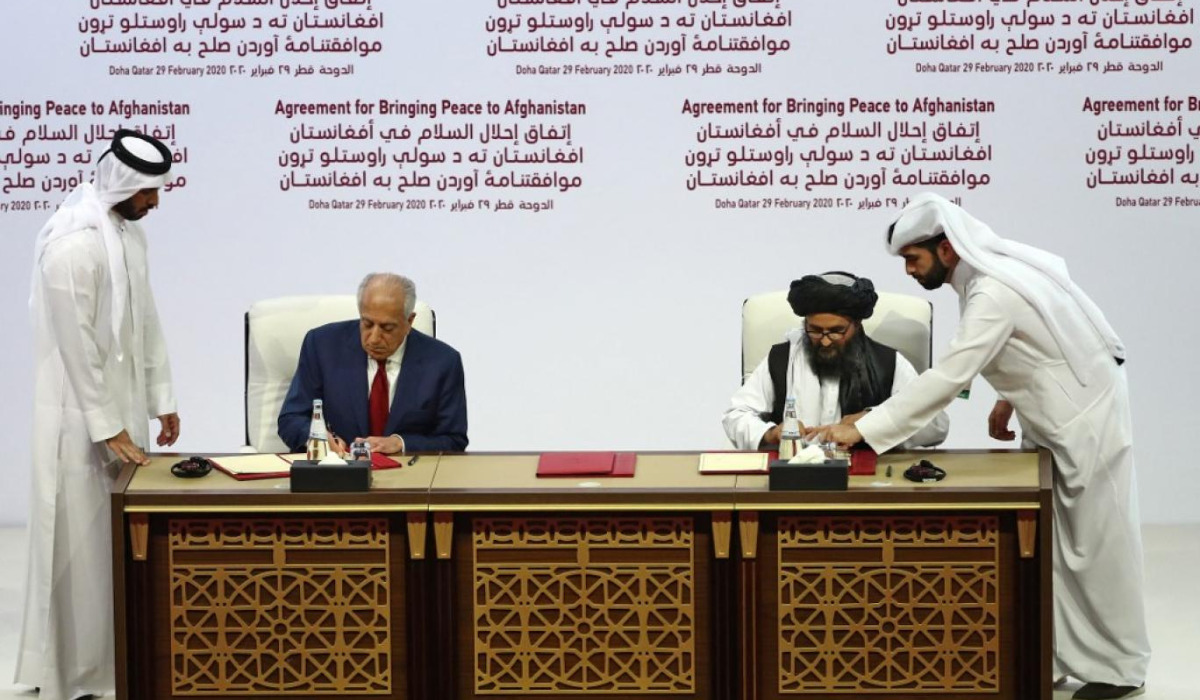Norway’s Peace Research Institute Oslo (PRIO) has said in a new report that Washington’s peace agreement with the Taliban, in 2020, opened the gates to Kabul for the Taliban and led to the downfall of the former republic government.
According to the research document, published on Saturday, PRIO points out that the US entered direct talks with the Taliban in 2018 while excluding Afghanistan’s legitimate authorities.
The report depicts the agreement, or peace treaty, signed with the Taliban as being “vague” and that Washington made commitments on behalf of the former government – despite having sidelined Kabul from the talks.
“In the process, the US gave in to the Taliban’s demands, with the resultant peace treaty non-committal with regards to a ceasefire, and with built-in vagueness on mutual obligations, mechanisms for monitoring, and consequences of violations. In addition, the US made commitments on the behalf of an unwilling Afghan government, most importantly to a large-scale exchange of prisoners,” the report read.
It stated that the “US-Taliban deal virtually opened the gates to Kabul for the Taliban, leading to the downfall of the Afghan republican government.”
The case brief laid out the dynamics of the US-Taliban process, specifically related to three core dimensions of peace talks – that being the positions, the participation and the procedures.
“Once the US had changed its position, and decided to privilege military withdrawal from Afghanistan even if that should come at the cost of the state it had invested in so heavily, the Taliban had victory in sight. The shift in positions also led to the US accepting the Taliban’s preferred participation in talks, with US-Taliban talks
preceding intra-Afghan negotiations, inevitably opening up for a process in which the Taliban got major breakthroughs at the negotiation table with the US, without having given any
concessions vis-à-vis the government and its constituent actors.”
The report also stated that the US deprived the government of any major leverage and instead, through decisions made, contributed to the Taliban eventually gaining undivided power.
“Ultimately, through the procedural dimensions of the US-Taliban process, where initial commitments to a ceasefire and to intra-Afghan talks were made non-binding and where US signals conferred near certainty that international military withdrawal would take place, the US deprived the Afghan government of any major leverage. The US also committed to a prisoners’ exchange on behalf of the government.
“Choices were made at each step of the way that contributed to the Taliban gaining undivided power by August 2021. Yet the main decision by the US was to disengage militarily, and then subordinate all other strategic priorities, with the exception of counterterror commitments, to this objective,” the report read.
In addition, the report noted that it is uncertain what the outcome and consequence would have been had the US, with its international allies, decided to impose conditions on the
Taliban and maintain military pressure. Some would argue that a limited military presence could have kept the government in
power and the Taliban at bay, others would argue that continued military presence may have made some sort of power-sharing deal with the Taliban possible.
“In either case, the question that it leaves us with is whether it was ethically justifiable, given the predictable consequences, to send such a strong signal that a military withdrawal would be forthcoming regardless of the outcome of the talks.”





